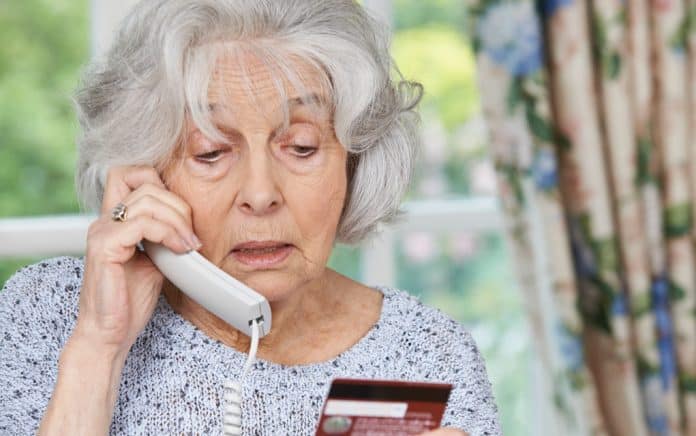
Seniors make twice as many purchases over the phone as any other age group. That leaves them wide open and vulnerable to scams involving phone calls. Because everything is done over the phone and disposable numbers and phones are tossed when the scams are complete, the perpetrator is almost impossible to catch.
And when it comes to scamming seniors for money, pulling on the heart strings is a most effective approach — especially when it involves the grandkids.
The Grandparent Scam
According to the AARP, one of the easiest scams to fall for is known as the “Grandparent Scam.” The phone rings, you pick it up, and you hear a grandchild desperately begging for your help.
They claim they’ve been in an accident, or maybe they’re stuck on the side of the road with a broken-down car. Or, maybe they just need a little bit of money to pay for an emergency bill.
The caller begs you not to tell their mother and father, which a typical child or teen might do. You convince yourself that they even sound like your grandkids. After all, how could you not help?
It all sounds so real…but is it?
The Truth
In reality, the scammers who make these calls buy telephone numbers wholesale, often on the black market. Lists are cultivated to specifically include more vulnerable individuals over the age of 65 or 70 because criminals know they stand a better chance of making that quick buck.
It’s a nasty little crime, but because of technological limitations, perpetrators are almost impossible to track. And that means it’s up to you to become aware so you can stay safe.
Here’s What You Need to Do
- Plan ahead by creating verification words and signals with the children in your life… yes, even the youngest ones. Keep it simple for the kids, but not easy for scammers to guess. Stick to one syllable words for the youngest ones.
- Practice using the verification phrase. The younger the child is, the more fun you need to make it. Do things like ask for the phrase before you give a cookie or make it a game of getting that phrase before putting their favorite cartoon on.
- When someone calls and says that a child related to you needs help, be sure to write down the number they are calling from or ask for it “in case of disconnection.” If you happen to have a landline and a cell phone or computer, use the one you aren’t talking on to share the information with the authorities or someone who can contact the authorities while you are on the phone. (This gives them a better chance at tracking the call and possibly apprehending the suspect. Or if the child really is in need of help, this information can help the authorities find the child.)
- Never give any kind of information about yourself or the child unless you get the verification phrase or signal.
- Be polite, but firm about obtaining the verification word or phrase. Keep in mind that they are going to try everything they can to get your money or information. That means they might tell you that the child is injured and unable to speak. If this is the case, ask for a specific signal that you and the child have practiced. If they tell you the child is unconscious and you still think they may be legitimate, ask for an identifying mark on the child.
- The firmer you are about obtaining contact information and/or identity verification from the child, the more likely the caller is to hang up. When they do, if you haven’t already notified the authorities, be sure to do so. The more information they obtain about these scammers, the more likely they are to catch them.
~Here’s to Your Financial Health!
Copyright 2020, FinancialHealth.net


















